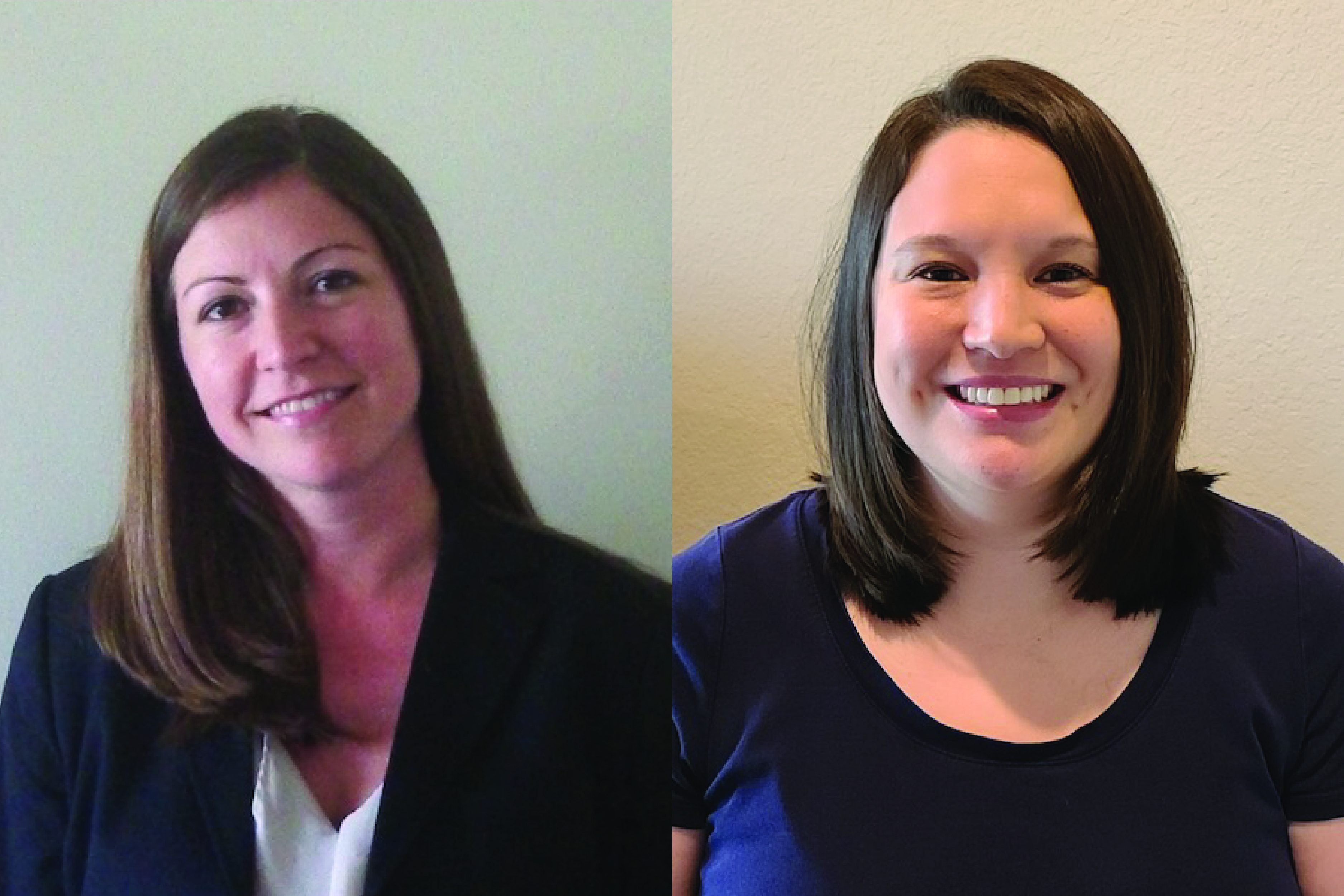Make New Year’s Resolutions That Last with SMART Goals
Baylor psychology experts present the positive mental benefits of setting realistic, achievable goals

Alisha Wray, Ph.D, and Regina Hiraoka, Ph.D., with the Baylor Psychology Clinic, say using the SMART goals approach to set personal goals and resolutions can set you up for success and improve your mental health. (Image credit: Chavapong Prateep Na Thalang/Getty Images)
Contact: Shelby Cefaratti-Bertin, Baylor University Media & Public Relations, 254-327-8012
Follow us on Twitter: @BaylorUMedia
WACO, Texas (Dec. 11, 2023) – Millions of people make resolutions at the beginning of each year to lose weight, quit bad habits, save money, and so on. Unfortunately, many resolutions are quickly broken because they are overly overambitious or unachievable – which can lead to feeling disappointment in ourselves. How do you create a more realistic resolution you can achieve? Two Baylor psychology experts say it can be done with SMART goals.
Alisha Wray, Ph.D, and Regina Hiraoka, Ph.D., with the Baylor Psychology Clinic, say using the SMART goals approach to set personal goals and resolutions can – in turn – set you up for success. SMART goals help give direction and guidance in goal setting, measure progress and lead to better results for lasting change – and bonus: better mental health.
SMART goals are:
- Specific – Goals are small enough in scope and clearly defined so that the goal is clear.
- Measurable – Goals make it clear when you have achieved your goal and allow you to track progress as you work toward that objective.
- Attainable – Goals are feasible and realistic to achieve.
- Relevant – Goals are aligned with your values and what matters to you.
- Time-Bound – Goals have a deadline and allow you to set new goals or revise your goals over time.
“While resolutions often come from good intentions to improve our lives, most typical New Year’s resolutions break many of the above tips,” Wray said. “Many resolutions can be unrealistic and vague – such as get fit, eat healthier, get better grades – and might be driven more by what others might think is important than what is truly meaningful to us.”
“Setting and working towards SMART goals is an ongoing process,” Hiraoka added. “While New Year’s resolutions may be easily abandoned when challenges inevitably emerge. The person may then be inclined to wait until the next year to begin again.
Promote a Sense of Mastery
While setting SMART goals, the Baylor psychologists say it’s important to choose goals that promote a sense of mastery.
“Many goals we set out to achieve are related to to-do lists or other tasks that are important for us to complete,” Wray said. “These types of tasks are often referred to as ‘mastery’ tasks that promote a sense of achievement or accomplishment, like completing a hard workout or finishing a paper.”
While these may not be the most fun tasks, they can, and often do, “give us a sense of purpose or meaning in our lives, can help the world around us to feel more within our control and can build self-confidence,” Wray said.
It is easy to procrastinate on our goals when we feel a lack of purpose, stress and sometimes even develop mental health problems, she added.
Enjoy Your Goals
Another important aspect of SMART goals is to set resolutions that bring you a sense of enjoyment.
“Intentionally creating goals related to activities or experiences that give us a sense of joy, such as spending time with friends, being in nature or listening to music, can be just as important for our mental wellness,” Hiraoka said.
Stay Consistent
Approach your SMART goals, even – and especially – when you do not feel like it.
“Avoiding our goals can backfire and contribute to disappointment, guilt and stress,” Hiraoka said. “When valued goals in our life are put off for too long, it can lead to chronic stress and sometimes mental health problems like anxiety and depression.”
Sometimes when our goals seem out of reach, taking even a small step toward that goal can bolster a sense of accomplishment that can springboard us into more action.
Wray and Hiraoka remind us that SMART goals can always be revised to be more attainable or more relevant, something that will actually work for you, not against you.
“Many evidence-based mental health treatments utilize these principles to help people identify and reconnect to the things that matter most in their lives which can have a positive impact on our mood and overall mental well-being,” Wray said.
ABOUT ALISHA WRAY, PH.D.
Alisha Wray, Ph.D., is clinical associate professor in the Department of Psychology and Neuroscience at Baylor, director of clinical training and director of the Baylor Psychology Clinic. Her clinical and research interests relate to creating/adapting, evaluating and disseminating evidence-based psychotherapies for justice-involved and Veteran populations. She also has an interest in routine outcome monitoring and measurement-based care.
ABOUT REGINA HIRAOKA, PH.D.
Regina Hiraoka, Ph.D., is clinical assistant professor in the Department of Psychology and Neuroscience at Baylor and associate director of the Baylor Psychology Clinic. She was clinically trained as a generalist, with clinical experiences across the lifespan, and later received a specialization in treating PTSD. Her research interests focus on topics related to anxiety disorders and trauma.
ABOUT BAYLOR UNIVERSITY
Baylor University is a private Christian University and a nationally ranked Research 1 institution. The University provides a vibrant campus community for more than 20,000 students by blending interdisciplinary research with an international reputation for educational excellence and a faculty commitment to teaching and scholarship. Chartered in 1845 by the Republic of Texas through the efforts of Baptist pioneers, Baylor is the oldest continually operating University in Texas. Located in Waco, Baylor welcomes students from all 50 states and more than 100 countries to study a broad range of degrees among its 12 nationally recognized academic divisions.
ABOUT THE COLLEGE OF ARTS & SCIENCES AT BAYLOR UNIVERSITY
The College of Arts & Sciences is Baylor University’s largest academic division, consisting of 25 academic departments in the sciences, humanities, fine arts and social sciences, as well as 11 academic centers and institutes. The more than 5,000 courses taught in the College span topics from art and theatre to religion, philosophy, sociology and the natural sciences. The College’s undergraduate Unified Core Curriculum, which routinely receives top grades in national assessments, emphasizes a liberal education characterized by critical thinking, communication, civic engagement and Christian commitment. Arts & Sciences faculty conduct research around the world, and research on the undergraduate and graduate level is prevalent throughout all disciplines. Visit the College of Arts & Sciences website.
